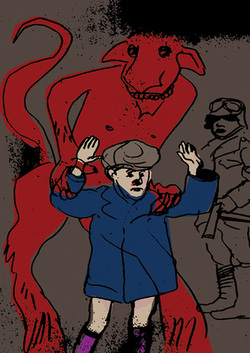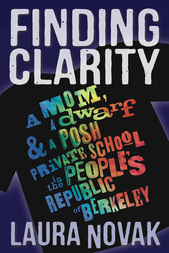
PhD provided me with this answer that took my thinking in a different direction:
***
"Families who enable psychopathology-- i.e., borderline, sociopathy etc. This would be found in the codependent literature.
A character/personality disorder is akin to addiction. Like with the addict or alcoholic in a family system, the family organizes around them, runs interference, and unwittingly reinforces the addiction. The family is held hostage by the pathology or addiction and is seen as disloyal or abandoning for breaking with the tribe, and this could lead to survivor guilt.
The best analysis comes from the Adult Children of Alcoholic literature-- basically it's a combination of separation guilt and survival guilt all as an outcome to a dysfunctional family organized around a narcissist. In the alcoholic family the alcoholic is observable and the by-products never so clear. All the research can be extrapolated to the narcissist.
The person who gets out of an unhealthy family system while others remain mired within it may experience what is referred to as “survivor’s guilt.” This term was originally used to describe the experience of soldiers who left mates on the battlefield. This person may become overly preoccupied with fixing their families, because the thought of being happy when their families remain locked in dysfunctional ways of living can be very painful to them.
The term survivor guilt came to us originally from Darwin, who identified the phenomenon of guilt felt among those who literally survived the death of others. This concept became more familiar to us after the Holocaust, when it was observed frequently among surviving family members whose loved ones had not survived prison camps. In more recent decades, the concept of survivor guilt has broadened quite a bit (O’Connor, Berry, et al.,“Survivor Guilt, Submissive Behavior, and Evolution Theory: the Down-Side of Winning in Social Comparison,” British Journal of Medical Psychology (2000), 73, 519-530). Contemporary research shows that survivor guilt (less commonly referred to in the literature as ‘inequity guilt’ or ‘outdoing guilt’) encompasses guilt about feeling better off than others, or about any sort of advantage a person may think they have when compared with other people. For example, superior ability or greater health, wealth or happiness may cause a person to feel guilty. O’Connor, Berry, et al. propose “that survivor guilt has been selected by evolution as a psychological mechanism supporting group living (p. 519).”
In terms of why a politician's kid or movie star's off spring might have a difficult time breaking away…it’s not only the money and the lavish lifestyle but the feared punishment for being disloyal. The abandonment depression that ensues with this kind of pathology can be directed in a very punishing way. It's the fear of wounding the narcissist (or borderline) that keeps those in the family chained to the system, as well as feeling like the "crazy" one. It's their job to continue to prop the narcissist or borderline up. Those who manage to break away do so in several ways with discreet tools. The most important factor is resilience-- the ability to overcome adversity and bounce back from difficult situations. They are adaptable and amenable. Another important element is a role model, mentor, peer, teacher, coach or healthy family member. Someone to validate that the Emperor has no clothes and verify that there is indeed an Elephant in the living room."
***
Fascinating food for thought. Thank you so much, PhD, for the time you’ve given us here. I really appreciate it. PhD will be available to interact in comments throughout the weekend. So please join the conversation!


 RSS Feed
RSS Feed



